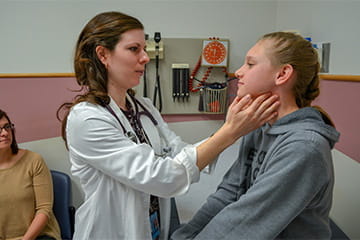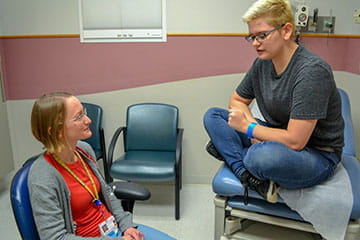 For adolescent medicine pediatricians at IU School of Medicine, scientific inquiry underpins all activities –from clinical care and teaching to empiric research. This group of pediatric specialists understands that the most impactful research related to adolescent health is interdisciplinary and collaborative within and across disciplines, departments and universities; and research must engage the community as a partner. Research projects here have led to important policy changes that impact the health of communities.
For adolescent medicine pediatricians at IU School of Medicine, scientific inquiry underpins all activities –from clinical care and teaching to empiric research. This group of pediatric specialists understands that the most impactful research related to adolescent health is interdisciplinary and collaborative within and across disciplines, departments and universities; and research must engage the community as a partner. Research projects here have led to important policy changes that impact the health of communities.
This productive approach to medical research enables the adolescent medicine team to recruit top-notch faculty who are excellent clinicians, teachers and investigators. Adolescent medicine faculty are nationally known for research in adolescent health as well as for advocacy and policy issues related to adolescents on the regional and national levels. The team’s research portfolio has grown from a $35,000 award to Donald Orr, MD, in 1984 to approximately $3 million annually.

